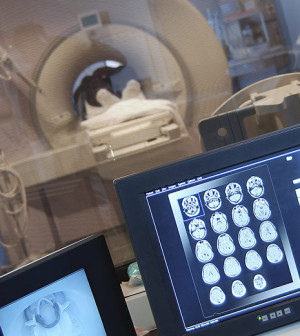- Could Your Grocery Store Meat Be Causing Recurring UTIs?
- Are You Making This Expensive Thermostat Error This Winter?
- Recognizing the Signs of Hypothyroidism
- 10 Strategies to Overcome Insomnia
- Could Artificial Sweeteners Be Aging the Brain Faster?
- Techniques for Soothing Your Nervous System
- Does the Water in Your House Smell Funny? Here’s Why
- Can a Daily Dose of Apple Cider Vinegar Actually Aid Weight Loss?
- 6 Health Beverages That Can Actually Spike Your Blood Sugar
- Treatment Options for Social Anxiety Disorder
Health Highlights: Sept. 16, 2016

Here are some of the latest health and medical news developments, compiled by the editors of HealthDay:
Hand, Foot and Mouth Disease Outbreak at Florida State University
Florida State University in Tallahassee is reporting an outbreak among students of the viral illness known as hand, foot and mouth disease.
Highly contagious, it typically strikes children, and manifests with fever, sores on the hands, feet and mouth, and a rash on the hands and feet, CNN reported.
Although outbreaks are more common among the very young than young adults, hand, foot and mouth disease does sometimes pop up on college campuses, according to the American College Health Association.
The current outbreak started as a “trickle” on Monday, FSU director of University Health Services Lesley Sacher told CNN.
“So far, “we’ve seen less than 16 cases on-site,” although more students have reported the illness but are being seen by health providers elsewhere, she added.
Hand, foot and mouth disease is caused by “a virus that lives in the intestines, and it is very contagious,” William Schaffner, an infectious diseases specialist at Vanderbilt University, told CNN. It seems to spread most easily in late summer and early fall, he added.
He also noted that Tallahassee has just gone through a Hurricane Hermine. “We’re thinking days without electricity, [and] hot, humid conditions make germs very happy,” he said.
The disease is treated using pain relief and plenty of hydration, Atlanta pediatrician Dr. Jennifer Shu told CNN.
FSU is implementing a “full sanitation effort,” Sacher said, and because some patients were fraternity members, certain events — including Rush Week — have been cancelled to help curb the outbreak.
Copyright © 2026 HealthDay. All rights reserved.










